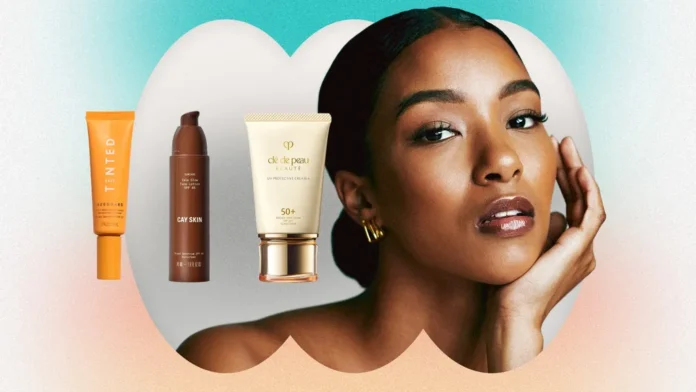For far too long, the world of sunscreens has overlooked the unique needs of those with darker skin tones. But thankfully, there is now a growing recognition and availability of sunscreens specifically designed for this often-underrepresented group.
People with darker skin tones have specific characteristics that require special attention when it comes to sun protection. Their skin contains more melanin, which provides some natural protection against the sun’s rays. However, this does not mean they are immune to sun damage. Darker skin is still susceptible to sunburn, hyperpigmentation, and other harmful effects of ultraviolet (UV) radiation.
Traditionally, many sunscreens on the market were formulated with a one-size-fits-all approach. They often left a white cast on darker skin, which not only looked unappealing but also made it difficult for people to feel confident in using them regularly. This lack of inclusivity led to many individuals with dark skin tones either avoiding sunscreens altogether or struggling to find products that truly worked for them.
But now, finally, there are sunscreens that take into account the specific needs of darker skin. These new formulations are designed to blend seamlessly into the skin, without leaving that dreaded white residue. They are often tinted or have a more natural finish that compliments the complexion of darker individuals.
In addition to the aesthetic aspect, these sunscreens also provide effective protection. They offer high levels of SPF and broad-spectrum coverage to safeguard against both UVA and UVB rays. Some even incorporate additional ingredients that address common skin concerns for people with darker tones, such as hydrating and soothing properties.
The availability of these specialized sunscreens is not only important for individual skin health but also has a broader impact. It promotes inclusivity and diversity within the beauty and skincare industry. It shows that companies are listening to the needs of all consumers and making an effort to provide products that work for everyone.
Moreover, it encourages people with darker skin tones to take sun protection seriously and incorporate it into their daily skincare routine. By having access to products that they feel comfortable using, they are more likely to protect their skin and reduce the risk of long-term sun damage.
As the demand for these sunscreens continues to grow, we can expect to see even more innovation and improvement in the future. More brands will likely enter the market, offering a wider range of options for people with darker skin. This is a positive step forward in ensuring that everyone has access to high-quality sun protection that is tailored to their specific needs.
In conclusion, the emergence of sunscreens made for dark skin tones is a significant development. It represents a shift towards a more inclusive and diverse skincare landscape. Finally, people with darker skin can enjoy the benefits of effective sun protection without having to compromise on appearance or comfort. It’s a win-win for all, and we look forward to seeing this trend continue to grow and evolve.


